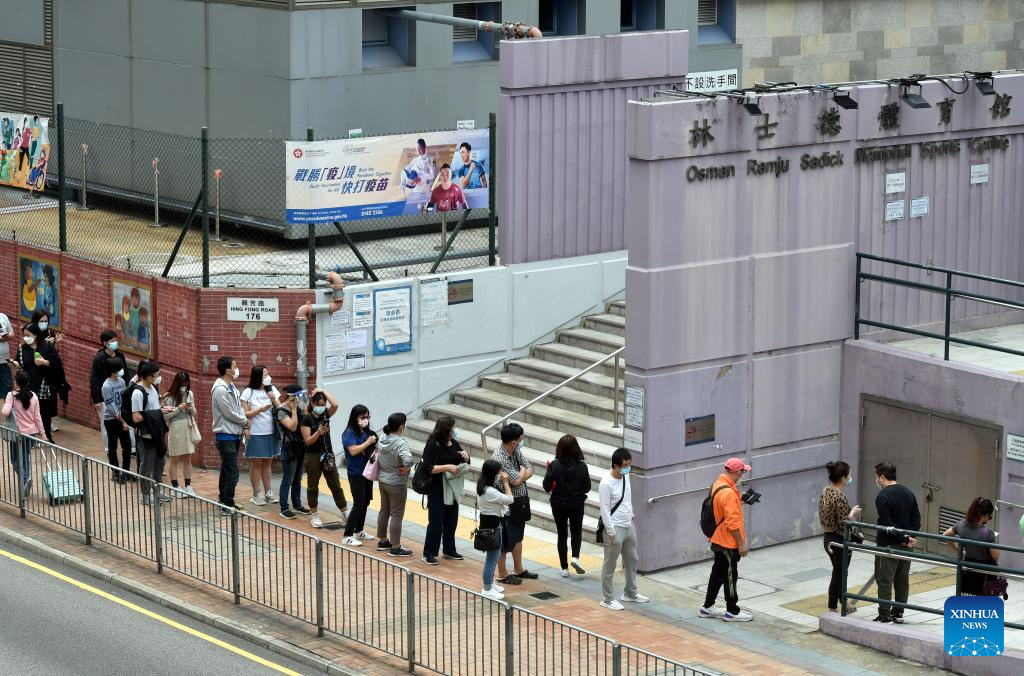Expert calls for expanded booster campaigns to beat virus


Studies based on the recent resurgence of COVID-19 in Hong Kong have shown the robust protection provided by a booster shot of domestic vaccines, and a prominent Chinese biologist has suggested expanding booster shot campaigns as a means for China to put an end to the epidemic.
Rao Yi, president of the Capital Medical University in Beijing, said that data from Hong Kong - where both domestic and foreign vaccines have been widely deployed - show there is no major difference regarding their effectiveness against severe symptoms and death.
The latest finding could significantly broaden the acceptance of domestic vaccines, Rao said in an article released online on Tuesday.
Inactivated vaccines developed by Chinese companies, including Sinovac Biotech, have been suspected of being less effective than overseas shots, especially mRNA-based vaccines.
According to a study released by scientists in Hong Kong on March 22, two doses of Sinovac were 72 percent effective against severe disease or death from COVID-19, and 77 percent effective against related death among people aged 60 and over.
These efficacy rates were lower than those offered by two mRNA vaccines developed jointly by Pfizer and BioNTech, which were 90 percent effective against serious diseases and 92 percent against deaths.
However, a Sinovac booster shot raised the protection against severe disease among the elderly to nearly 98 percent and protection against death caused by the disease to 98.3 percent. Both levels were on par with those of a third mRNA shot, according to the study released on medRxiv, a medical preprint platform.
"With such information, our country should further expand the use of domestic vaccines because they are proven to be effective," Rao said.
"More importantly, their side effects are significantly lower than mRNA vaccines, making it easier to be accepted by the elderly and toddlers," Rao said.
Inactivated vaccines, made using a very mature technology, have become a pillar of China's domestic vaccination campaigns. They are considered very safe, even for people with immune deficiencies or the elderly.
By comparison, Rao said that mRNA vaccines, though known for being highly effective, have appeared to be weakened by the Omicron variant. As a novel technology being put into widespread use for the first time, its long-term effects and occurrence of side effects after vaccination also present concerns.
"The introduction of mRNA vaccines into the mainland has mainly been hindered by worries over their side effects, including fever," he said.
On the Chinese mainland, vaccination among the elderly and the young ranks the lowest among all age groups. Rao said that adding mRNA vaccines into the domestic immunization campaign will inevitably cover a large number of these two age groups and might trigger panic if side effects become more prevalent.
He also argued against lifting COVID-19 restrictions amid the fast spread of the Omicron variant at present.
"If a large number of people in China get infected, we cannot guarantee that more dangerous mutations will not emerge in the future and bring devastating consequences," he said.
With the growing evidence of the efficacy of domestic vaccines, Rao said that a feasible approach for China to open up in the future is to further expand mass immunization while strengthening health education among the public.
"More efforts are needed to promote awareness (about the virus), and change the habits of going to hospitals even with mild symptoms, so as to relieve potential strain on the medical system," he said.
- World's longest expressway tunnel to open to traffic in Xinjiang by year-end
- HKSAR govt releases first-ever Chinese medicine development blueprint
- Ten photos from across China: Dec 12 - 18
- Visa-free measures spur surge in visitors
- Avalanche in Xinjiang leaves one dead
- Research ward at children's hospital in Shanghai treats over 200 patients with rare diseases




































